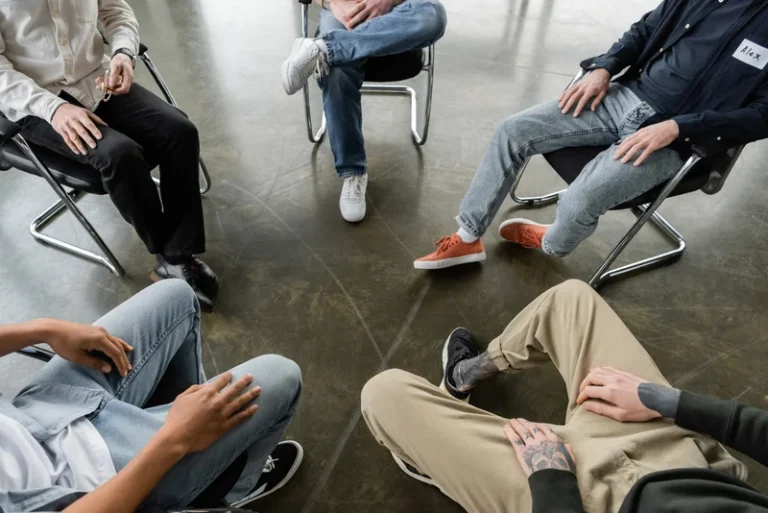
Remind your teens that they are their own people making their own choices. It is up to us as parents, to establish the boundaries that will keep them safe and to guide them towards healthy values they Oxford House will choose to follow. Friends and peers can have positive and negative influence on children. Parents can influence the odds that teens are surrounded by positive peer groups by encouraging participation in a variety of healthy activities.
Talk about independence with your child
- Reducing time spent on these platforms can help parents avoid these pressures, fostering a more authentic and satisfying parenting experience.
- Recommend ways for them to get out of a situation that they feel uneasy about with thoughtful responses.
- Some researchers have made attempts to go beyond skills and deficit model-based understandings of health literacy.
- ” It is crucial that you monitor your child’s activities on social media or the internet and address any concerns with them.
- One thing you may want to do is create a chart about what topics you are willing to address at what age.
- Thus, increasing awareness of these non-school resources among adolescents through school health services would be worthwhile.
A belief in themselves will help them do what they feel is right. It’s a combination that lets them resist succumbing to peer pressure and have the strength to walk away. They will know that even if they “fail” among their peers, they will succeed in the long run. Cultivating a network of support that reinforces personal values over societal expectations can also provide a bulwark against these pressures. Ultimately, the journey of parenting should be guided by love, understanding, and the genuine interests of the family, free from the shadows of comparison, fostering a healthier, happier family life.
Debrief with your kids

Establish clear boundaries with your child and https://ecosoberhouse.com/ reinforce them consistently. Let your child know what is expected of them and what behaviours are not acceptable. When your child understands your expectations, they are more likely to make choices that align with their values and beliefs. Parents can work with their child’s school to create a positive school environment.
Increased stress and anxiety in children

Teaching your child healthy conflict resolution skills can help them navigate disagreements and difficult situations with their peers. This can include teaching them how to express their needs and feelings assertively, listening actively, and compromising when appropriate. Practice different strategies with your child that they can use to say no to manage peer pressure in various situations. Encourage them to be assertive, to stand up for themselves, and to express their opinions and feelings confidently.
As children grow, they begin to navigate more complex social situations, including peer pressure. For parents, discussing peer pressure can be challenging yet an essential part of early parenting in this modern era. In elementary and middle school, kids are forming their identities and learning how to make decisions. Modelling healthy boundaries is important for children to learn by example. Make sure what is indirect peer pressure that you are modelling clear boundaries and healthy decisions in your own life, and that your child sees you standing up for yourself when your boundaries are being pushed.
- It’s important to keep the lines of communication open with your children when they’ve witnessed a disagreement or argument at a family gathering.
- By doing so, their inner strength will help them stand firm with their feelings.
- Equipping teens with a variety of communication strategies empowers them to make good decisions when faced with peer pressure.
Parenting
- The rise of social media also seems to be a major factor, which has contributed to parents feeling pressure to meet unrealistic societal expectations – hence the ‘perfect parent’ facade.
- Help your child build their self-esteem by praising their efforts, encouraging them to try new things, and supporting their interests.
- Most people giving advice simply want to help, but if it becomes too much, politely and assertively explain to them that you respect their advice but will choose to follow your own.
Access, including sufficient time, was a requirement for resource activation, and opportunity for participation in healthcare and health information was key. The final set of factors we identified that moderated the activation of resources to develop and practice health literacy was the participants’ pre-existing health literacy. In 2019, authors YR and OS were approached by the canton of Zug to independently evaluate its school health service. In 2015, Zug had introduced a reorganization of these services, which aimed to better integrate health promotion and prevention topics, and to increase students’ health literacy 21. The evaluation thus focused on these new elements and their effectiveness.

Listen to your child
Ultimately, you know that you’re doing the best by your kid, and that’s all that really matters. If another child is pushing your child toward something better, that is a good thing. For example, it might encourage your child to participate in the school talent show or science fair.
Parents’ Guide to Podcasts
Yes, dealing with or confronting difficult or toxic family members during the holidays can be intimidating or make you (and all your other guests) feel uncomfortable. But if someone is degrading you or your children, it’s worth it to stand up for yourself—and remember that you do have some power in the situation. Employing these expert-backed strategies for managing the situation will be helpful, and even healing.

How Do Peers Affect You?
Discussing health behaviors and how to deal with them according to fictional examples relating to their lifeworld is a way to engage adolescents without them needing to disclose personal information. This is a method which is already employed in the preparation lessons as part of the school health service in Zug. For example, many participants demonstrated health literacy in the sense of knowing who to turn to for health information or support and critically evaluating which resource they would activate in specific situations. The ‘virtuous circle’ of pre-existing knowledge is also nicely exemplified by the preparation lesson and the school doctor consultation. In contrast, a suboptimal understanding of the aim of the school doctor consultation led to participants not effectively activating this resource. This is in line with previous research showing that “not knowing how to ask the doctor the questions I really wanted answers to” was among the top three doctor-patient communication problems of high school students 27, p. 190.
